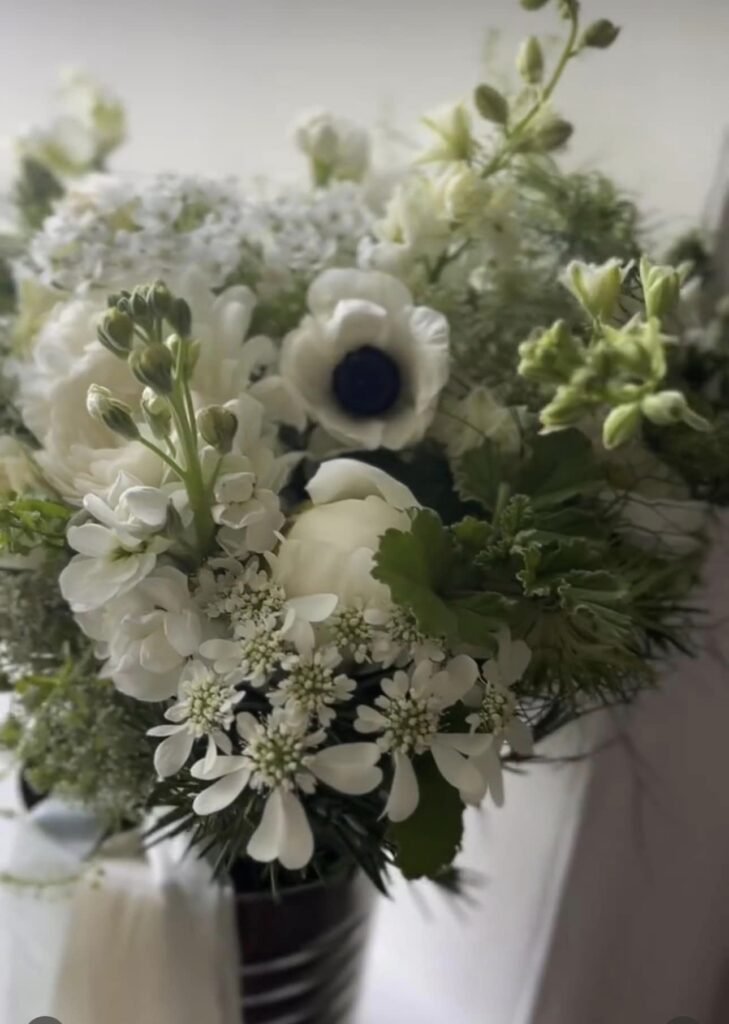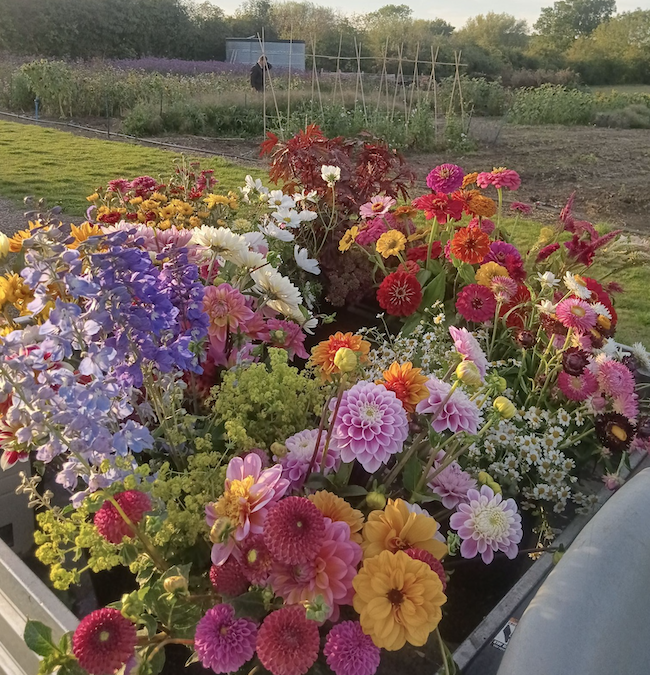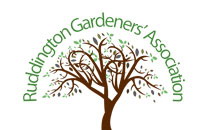Routledges : British Grown Flowers
Steven Routledge from Floral Media spoke about British Grown Flowers on Wednesday September 25th, 2024.
His nursery’s focus is on quality (flowers that last and with long stems) and sustainability to help the environment.
It was a good turn-out on a wet evening for the start of our winter programme and the colourful collection of Steven’s Autumn flowers and plants was a welcome sight.
As well as flowers, he has six beehives and a wildflower meadow on his 15-acre site. Steven and his wife Paula grow flowers and plants mainly for florists and farm shops on heavy red clay, which has the challenging addition of stones.
He gave us a quick history of his career from his father’s first rented farm at Annesley via a plot on land at Newstead Abbey and running Jacksdale Garden Centre.


It was 22 years ago that the couple moved to their present site at Caunton, which is now a National Garden Scheme (NGS) visitor garden. They welcome many groups during the summer; Paula has recently become a judge for the National Association of Flower Arrangement Societies (NAFAS).
Steven’s summary of the flowers grown at Floral Media was like an A to Z of a traditional florists’ shop, from antirrhinum, ranunculus and sweet Williams in the spring, to peonies, sweet peas, cornflowers and zinnias in the summer, and chrysanthemums and dahlias in autumn to name but a few.
Growing flowers for a living is not easy and, just like any gardener, Steven is at the mercy of the weather. He had a poor tulip harvest this year because of the wet autumn and spring.
When things go well, one florist buys 1,000 to 2,000 tulip stems from Floral Media each week.
Steven also has to keep an eye on wedding trends with brides favouring ‘floaty’ bouquets at the moment. Spotting these trends in colours and styles is a challenge.
He grows lots of alliums which flower from May onwards, with “Summer Drummer” with 6ft flowers being recommended for August displays.
The “Chelsea Chop” (cutting perennials hard back at the time of the Chelsea Flower Show in May) is used to ensure a succession of blooms. Many of the lilies grown for cut flowers are no longer scented, and staff at Floral Media know how to spot and destroy lily beetles!
Not surprisingly, the quality of the soil is crucial for uniform flower production, with the addition of Sylva Grow, wool, recycled organic matter and nutrients from anaerobic digestion being used to maintain soil fertility. About 300 tons of organic matter is used annually on the site.
Much of the area at Floral Media is under cover with labour intensive procedures such as propagation and netting of plants being done by hand. Steven sold off many of his selection of flowers after his talk, apologising that there were so few dahlias. He had picked 600 dahlias that day, every one of which was sold to his regular customers.
Steven explained that The Netherlands has long been a centre for the cut-flower industry, mainly due to the excellent marketing skills of the Dutch. Surprisingly, it was Brexit which changed things for British flower growers, as border rules have been relaxed enabling British growers to compete on the international market.
*There are Kings Seeds Catalogues and order forms available from Mike Davey – offering 50% off catalogue prices. Order forms should be with Mike by December 13, 2024.
*47 people have signed up for the visit to RHS Harlow Carr on Saturday October 5. The coach leaves The Green at Ruddington at 8.30am sharp.
